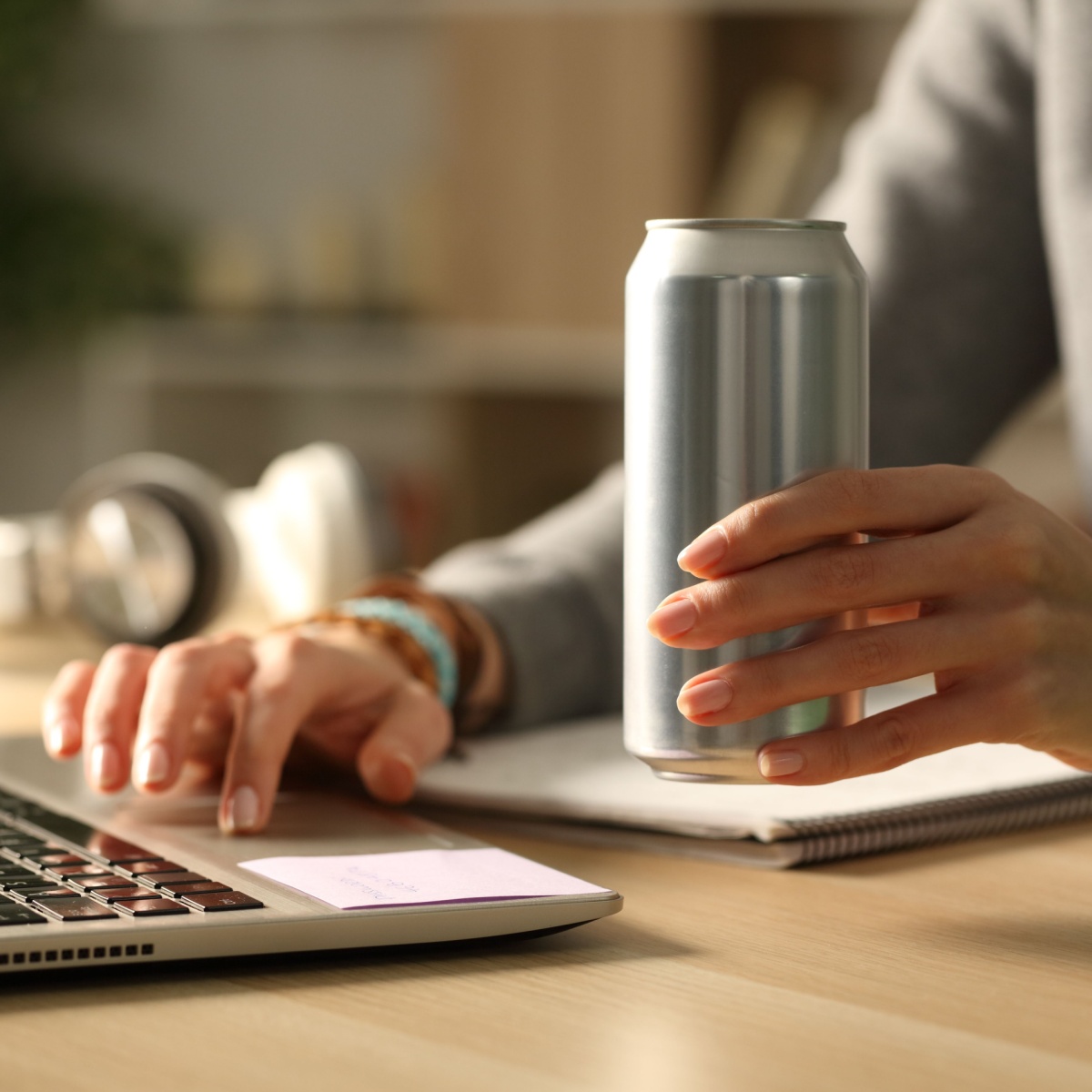
1. Energy drinks
Energy drinks, often consumed for a quick boost in alertness and energy, can have detrimental effects on gut health and contribute to visceral fat accumulation. Packed with caffeine, sugar, and artificial additives, these highly processed beverages can disrupt the delicate balance of gut bacteria, leading to inflammation and digestive issues. The high sugar content in energy drinks can also spike blood sugar levels, promoting fat storage, particularly visceral fat, when consumed in excess.
Pincus says that they "can cause gastritis, inflammation, increased gut motility, and diarrhea." "It can cause jitters and increase anxiety, which can exacerbate symptoms in people with irritable bowel syndrome (IBS)," she warns.
2. Sugary soft drinks
Loaded with high amounts of added sugars, artificial flavors, and preservatives, these processed beverages, such as soda, wreak havoc in many ways. The rapid influx of sugars from these drinks can spike blood sugar levels, prompting the body to store excess energy as fat. Moreover, the lack of fiber and nutrients in sugary soft drinks further exacerbates their detrimental effects on gut health, potentially paving the way for long-term health complications.
"Sugary soft drinks contain excessive amounts of added sugars, which can lead to an imbalance in gut bacteria and promote the growth of harmful microbes," Tesfu states. "The consumption of sugary beverages can trigger low-grade inflammation in the gut, contributing to gastrointestinal discomfort and other health issues. High sugar intake has also been linked to a decrease in gut microbial diversity, which is essential for a healthy digestive system."
3. Alcohol
Alcohol, a widely consumed substance, encompasses various types ranging from beer and wine to spirits like vodka and whiskey. Excessive intake can lead to detrimental effects on gut health, contribute to fat accumulation around the stomach, and other serious health issues. Certain types of alcohol, especially those high in sugar and calories like sweet cocktails and fortified wines, can damage your gut health and promote inflammation, ultimately leading to digestive issues and weight gain, particularly around the abdominal area.
"Excessive alcohol consumption can disrupt the balance of gut bacteria, leading to dysbiosis and impaired gut function," she reveals. "Alcohol can damage the lining of the intestines, increasing intestinal permeability (leaky gut) and allowing harmful substances to enter the bloodstream. Chronic alcohol intake has been associated with an increased risk of inflammatory bowel diseases (IBD) like Crohn's disease and ulcerative colitis."


